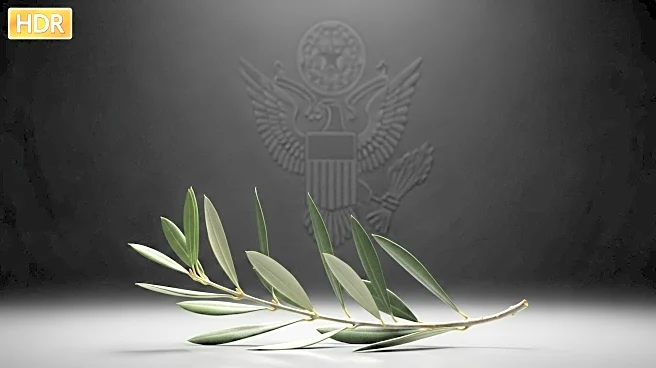What is the story about?
What's Happening?
Edan Alexander, a former hostage held in Gaza, has announced his return to the Israeli Defense Forces (IDF). Alexander, who holds U.S. citizenship, was the last known hostage alive in Gaza before his release. He spent 584 days in captivity before being freed. His announcement was made during an event organized by the Friends of the Israel Defense Forces (FIDF), where he spoke publicly about his experiences and future plans.
Why It's Important?
The return of Edan Alexander to the IDF is significant as it highlights the ongoing complexities and personal impacts of the Israeli-Palestinian conflict. Alexander's captivity and subsequent release underscore the challenges faced by hostages and their families, as well as the diplomatic efforts involved in securing their freedom. His decision to rejoin the military may inspire others affected by similar circumstances and reflects resilience in the face of adversity. This development also draws attention to the broader geopolitical tensions in the region, affecting U.S.-Israel relations and international diplomacy.
What's Next?
Alexander's reintegration into the IDF may involve a period of adjustment and support from military and psychological services. His experiences could be used to inform training and preparedness strategies within the IDF, particularly concerning hostage situations. Additionally, his story may influence public opinion and policy discussions regarding the treatment and negotiation for hostages in conflict zones. The FIDF and other organizations may continue to support Alexander and similar cases, advocating for policies that prioritize the safety and recovery of hostages.
Beyond the Headlines
Alexander's return to military service raises questions about the psychological and emotional recovery of former hostages. It also highlights the ethical considerations in negotiating hostage releases and the responsibilities of governments to protect their citizens abroad. The cultural impact of his story may resonate with communities affected by conflict, fostering dialogue on resilience and reconciliation.















